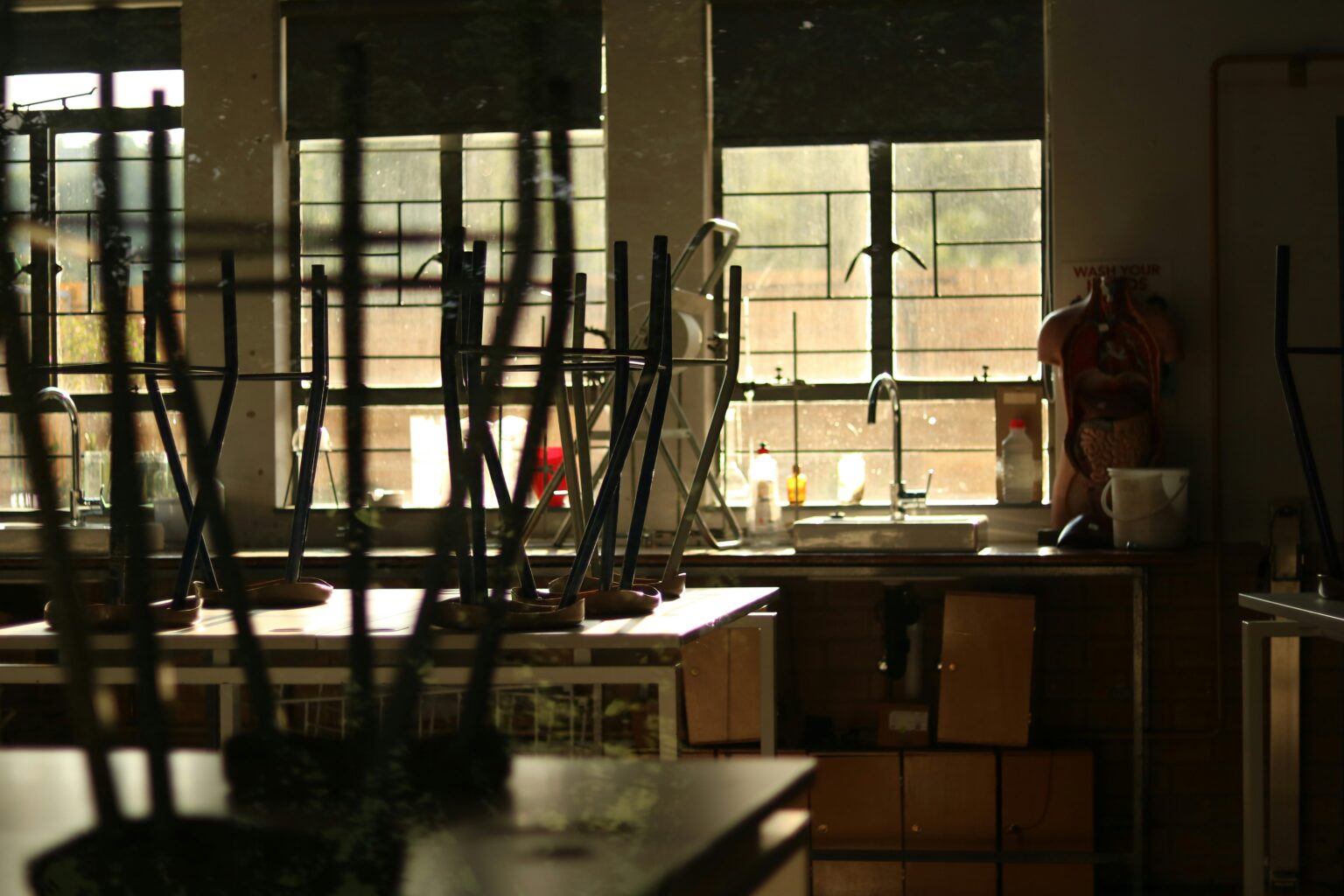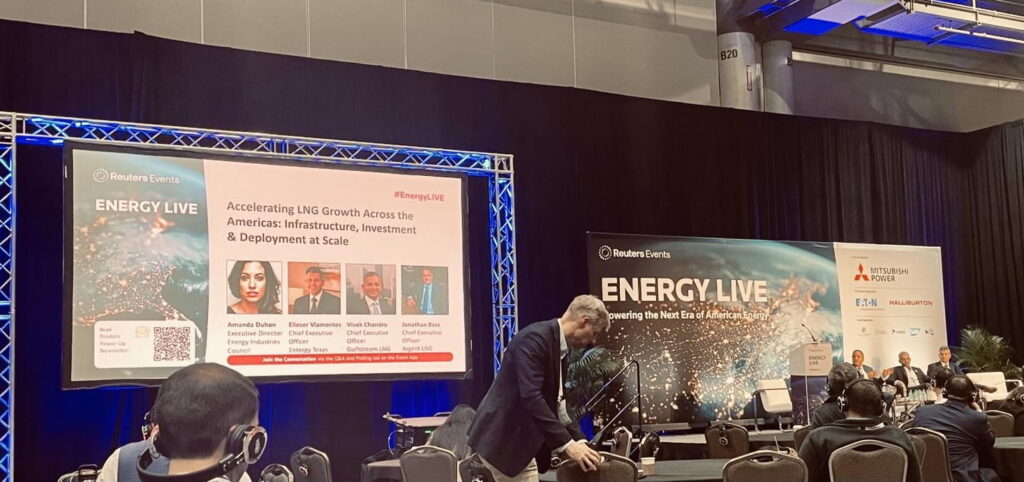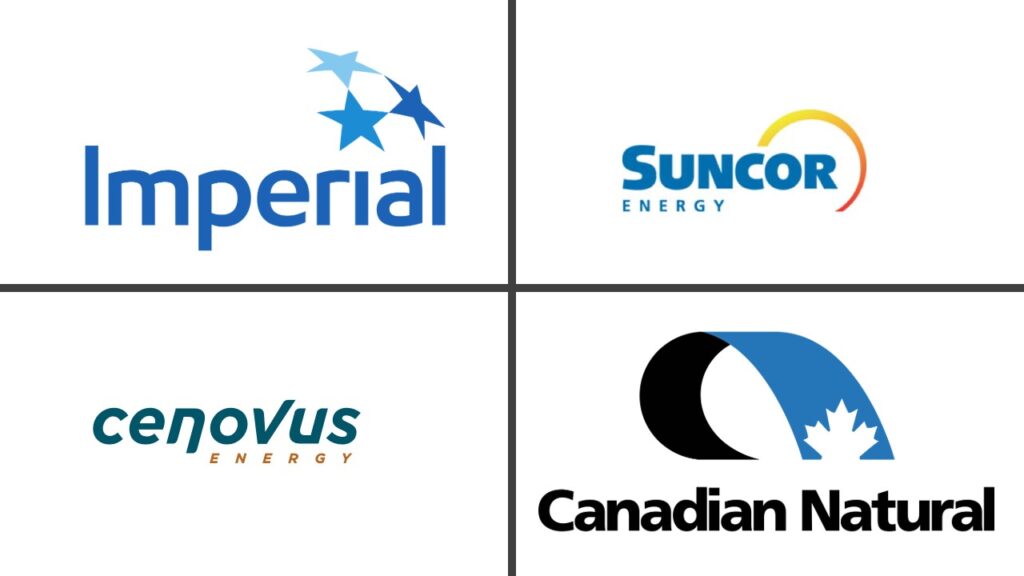Tar sands advocacy group Pathways Alliance has been sponsoring school science fairs, DeSmog has learned. Environmentalists are questioning the ethics of an oil industry lobby group participating in science fairs for children, particularly given their disregard for the scientific consensus concerning the relationship between fossil fuel use and climate change.
Pathways Alliance, which represents six Canadian fossil fuel producers, is listed as a platinum sponsor of the Calgary Youth Science Fair, which is also sponsored by oil majors Canadian Natural Resources, CNOOC International, and ConocoPhillips Canada, among others.
DeSmog reached out to Pathways and the science fair but did not receive a response.
A press release issued by Pathways Alliance on November 21, 2024 indicated that COSIA (Canada’s Oil Sands Innovation Alliance), which Pathways describes as their “innovation arm”, was “actively involved” in nine science fairs and science Olympics throughout Alberta in 2024. The press release further states they were responsible for sponsoring 30 students’ travel to participate in a national science fair in Ottawa in May of 2024.
The oil and gas sector’s involvement in children’s education in Canada caught the attention of the Canadian Association of Physicians for the Environment (CAPE), which earlier this year issued a report documenting the fossil fuel sector’s “extensive influence on climate education for elementary and secondary school students.”
CAPE’s study, titled “Polluting Education: The Influence of Fossil Fuels on Children’s Education in Canada” found that nearly 40 oil and gas companies, as well as a dozen industry groups, are involved in climate education by supplying materials directly to schools, through government partnerships, or by funding third-party suppliers of materials to schools.
The CAPE report reveals this effort reaches every province in Canada, as well as every grade from kindergarten through grade 12. The fossil fuel sector’s influence includes creating curricula, developing films marketed as educational resources (including one titled “The Amazing Athabaskan Oil Sands”), and sponsoring field trips and conferences.
“Corporations and lobby groups like the Pathways Alliance use sponsorships for greenwashing and as a strategy to gain social license — where they do positive activities in communities in order to gain favourable public opinion and legitimacy, despite the negative impacts of their business,” said Emilia Belliveau, program manager, energy transition, with Environmental Defence.
“Supporting science fairs is nice, but it’s no substitute for solving environmental problems,” said Keith Stewart, senior energy strategist with Greenpeace Canada.
“COSIA was founded in 2012 primarily as a public relations initiative to redirect the public debate from the need to phase out fossil fuels by promoting false solutions like carbon capture,” said Stewart in a statement to DeSmog.
In their press release regarding the Calgary Youth Science Fair, Pathways’ COSIA suggests they’ve been on the cutting edge of innovation for over a decade, bringing together “innovative thinkers in industry, government, science and academia with a focus on collaborative action and innovation in oil sands environmental technology.” They further suggest their collaborative model “has helped increase the pace of improvement in environmental performance.”
COSIA’s toxic history
According to some experts, Pathways and COSIA have long presented themselves as leading on scientific discovery, but this has been little more than a public relations tactic.
“When it was set up, COSIA’s primary task was to find a way to deal with the legacy of massive tailings ponds,” said Greenpeace’s Keith Stewart. “But thirteen years later their proposal is basically to release the diluted but still-toxic water into the Athabasca river.”
Canada’s oil sector proposed releasing what they termed treated water from tailings ponds back in 2022, a proposal that the federal government appeared ready to go along with, reversing a ban that stretches back decades. Federal regulations on releasing water from tailings ponds into freshwater rivers is expected this year. A 2021 CBC News article estimated the size of Canada’s tarsands-related tailings ponds at roughly 1.4 trillion liters, roughly equivalent in volume to 560,000 Olympic-sized swimming pools. Tailings pond water contains toxins in addition to higher concentrations of salt and bitumen residue. In order for the waste water to be returned to the natural environment, government regulations do not require that it be safe enough to drink. Communities in the Athabasca River watershed have complained that tar sands operations have already negatively impacted water volumes and quality, in turn causing fish and other animal populations to drop or vanish outright.
Indigenous communities in the area are particularly concerned, as leaks from tailings ponds have already negatively impacted their communities and way of life. In March of 2024 the Athabasca Chipewyan First Nation sued the Alberta Energy Regulator for their alleged mishandling and cover-up of tailwinds leaks from an Imperial Oil operation. Imperial is a member of Pathways.
Carbon capture’s science problem
Pathways Alliance also advocates for a carbon capture, utilization and storage (CCUS) project designed to sequester carbon dioxide emissions from tar sands operations in the region of Cold Lake, Alberta. Pathways Alliance has proposed the 1,600-kilometre carbon dioxide pipeline and storage project as an emissions reduction strategy, despite considerable scientific evidence CCUS is ineffective at capturing carbon dioxide emissions at source, poses additional dangers related to the transport and storage of carbon dioxide, and further has no effect limiting downstream emissions.
“It is ironic that the Pathways Alliance now sponsors science fairs, given that the companies behind the group are planning to expand oil extraction despite clear climate science showing that fossil fuel use is pushing us towards climate and biodiversity collapse,” said Belliveau of Environmental Defence.
“The companies that make up Pathways Alliance are fossil fuel giants that make up the largest source of climate pollution in Canada,” said Belliveau in response to questions from DeSmog. “While Pathways tries to present itself and the carbon capture projects (CCUS) they propose as climate solutions, they ignore the research that shows CCUS has consistently failed to deliver on meaningfully reducing emissions.”
Thomas Green, senior climate policy adviser with the David Suzuki Foundation, notes that the sponsorship of science fairs is just one way by which the oil and gas sector tries to improve its public image and gain social acceptability.
“There’s a lot of this in Canada and globally,” said Green in a statement to DeSmog.
“CAPP (the Canadian Association of Petroleum Producers) used to sponsor a Canadian Geographic climate education web platform that was hugely problematic in normalizing fossil fuels.”
Green notes that American fossil fuel interests promote cultural activities as a means of blocking climate action. Through subpoenaed documents, DeSmog recently reported that the American Petroleum Institute was actively working to cultivate “local nontraditional allies” that would work towards influencing policymakers.
Something similar appears to be happening in Canada. Environmental Defence began sponsoring a Canadian athlete earlier this year to draw attention to the fact Bobsleigh Canada was sponsored by Canada Action, a third party advertiser that argues increased Canadian oil production is good for the environment, as well as Athabasca Oil Corporation. Green also pointed to Save Pond Hockey, an effort to raise awareness about the effects of climate change on pond hockey in Canada, which has drawn attention to Esso’s (ExxonMobil) sponsorship of the IIHF World Junior Championship, a major international hockey tournament. Esso is not only a major sponsor and supporter of minor hockey in Canada, but further sponsors all seven Canadian hockey teams and refers to itself as the “official fuel of the NHL.”
A 2024 report in the Narwhal revealed that major Canadian winter festivals are sponsored by key players in the oil and gas industry, even though their products imperil winter as most Canadians know it.
Subscribe to our newsletter
Stay up to date with DeSmog news and alerts






